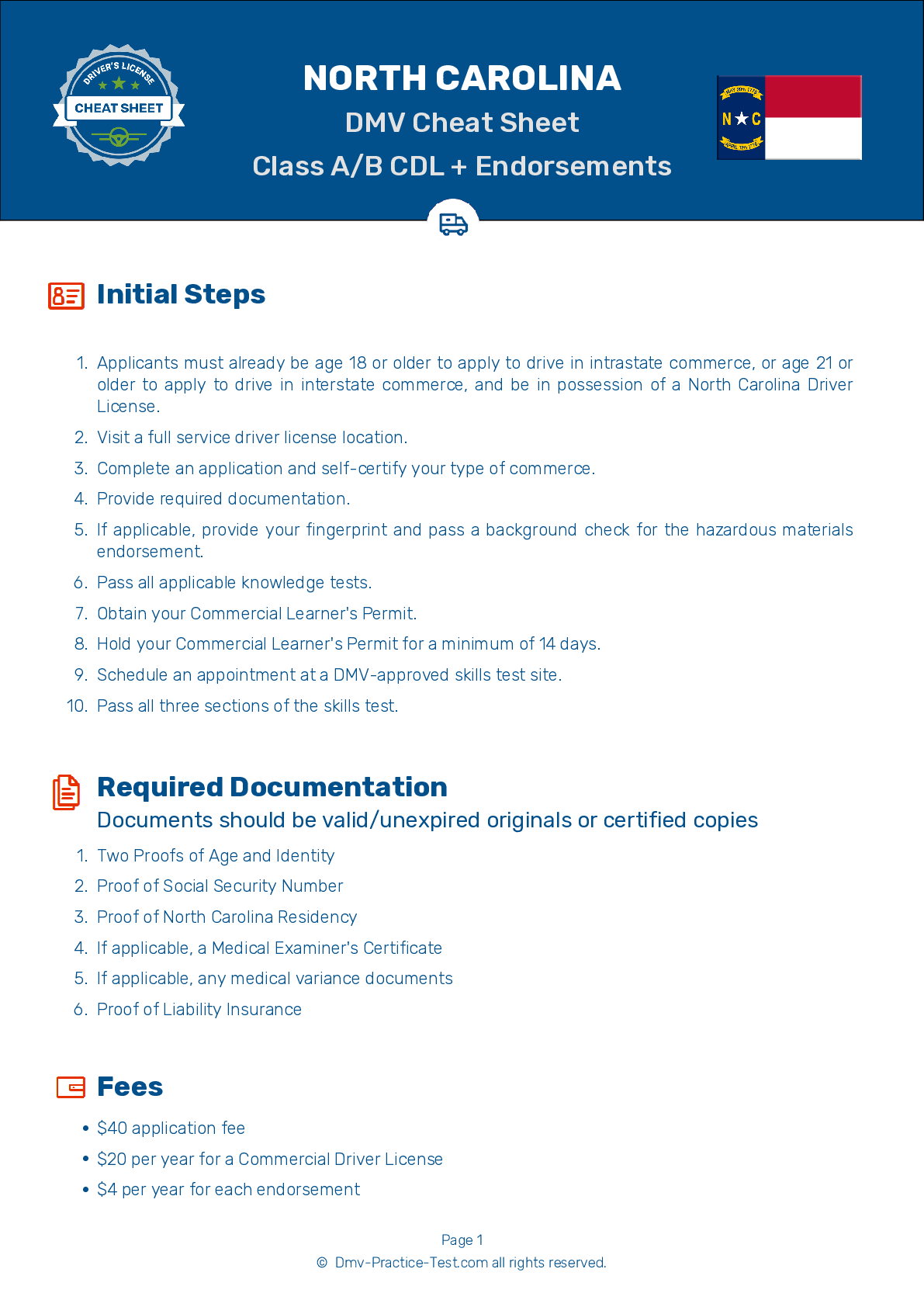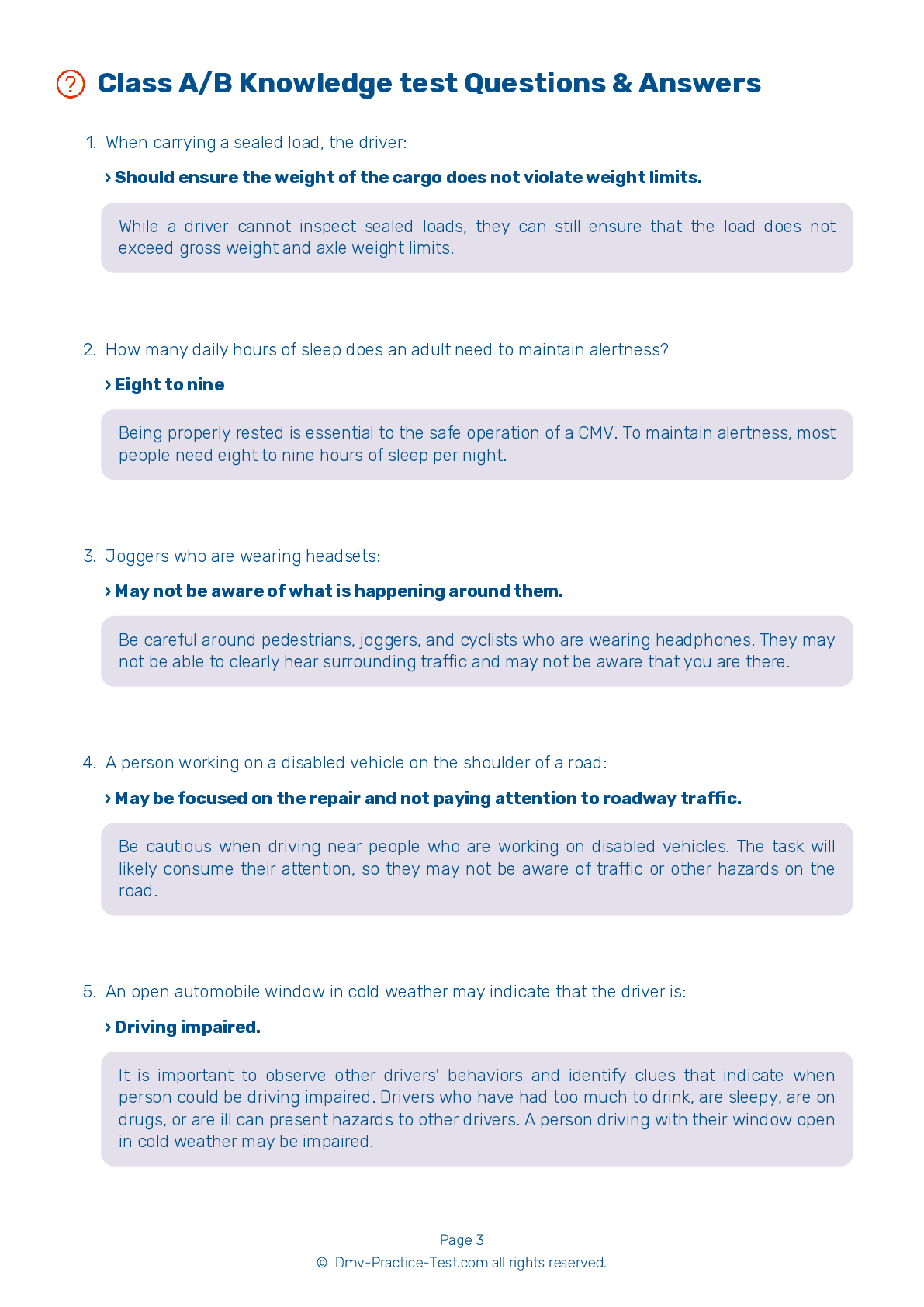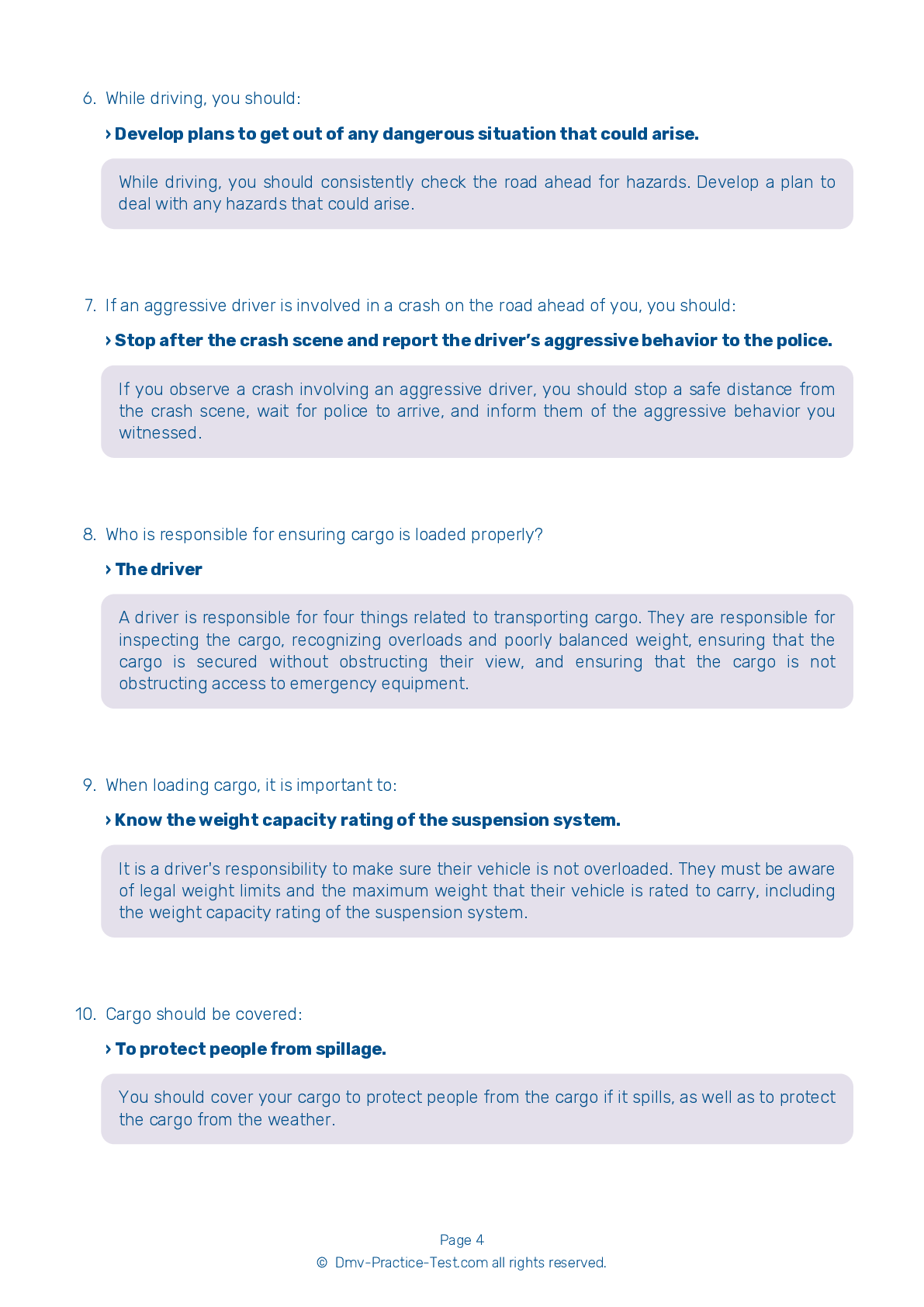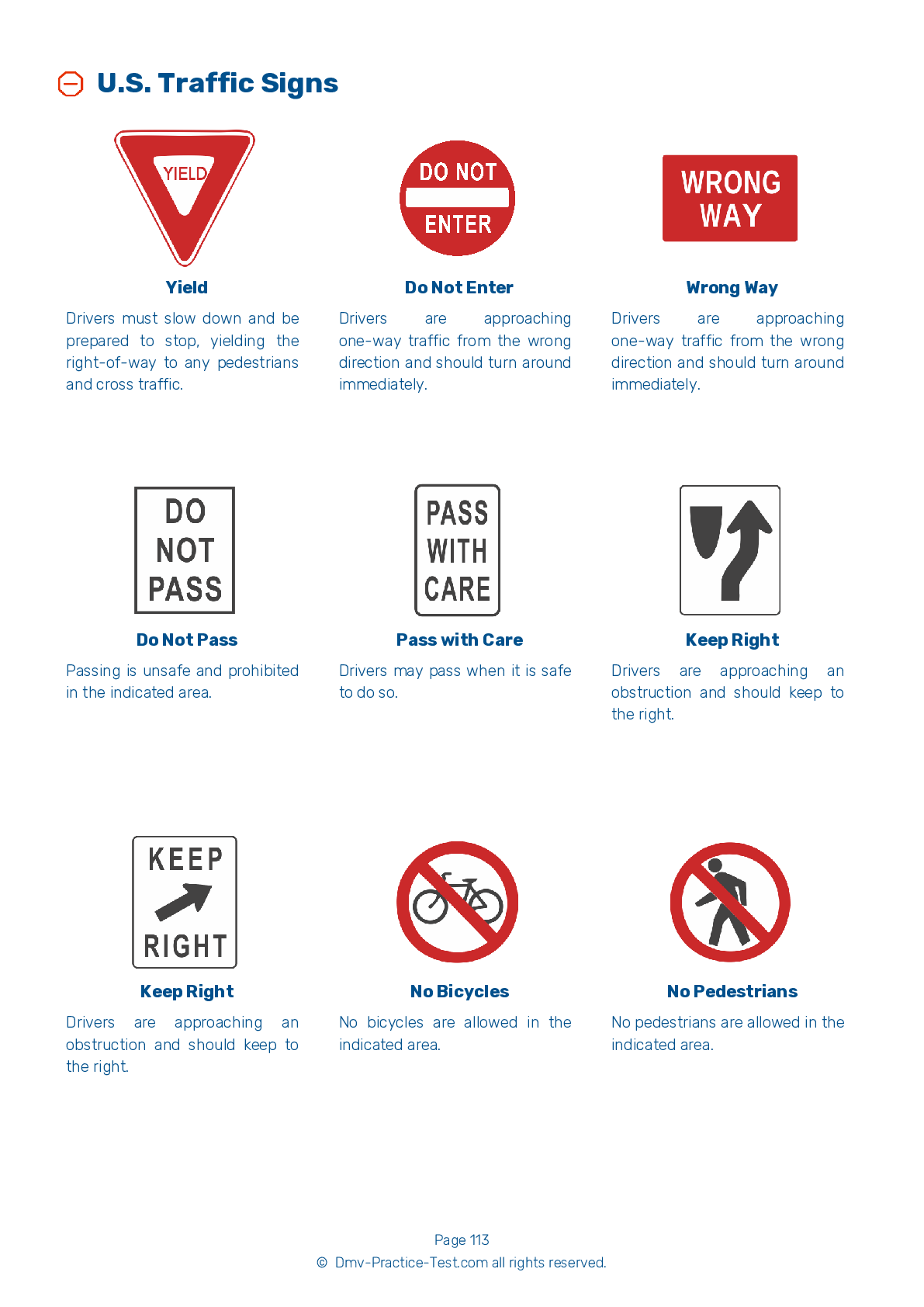Tank #1
Tank Endorsement Test | North Carolina 2026 #1 Page 3 of 3
Train for FREE with our North Carolina tank endorsement practice test online. The official exam test consists of several obligatory parts, with all of them checking your knowledge of different blocks of road rules. If you need to obtain a NC tank license in 2026, practice as much as possible. Free sample tests published on our website will help you check and improve your knowledge and boost your grades. Please bear in mind that DMV requirements for issuing a CDL tank vehicle endorsement may vary from state to state.
20
16
20
15 . As a driver, which of the following is not your job at the scene of an accident?
If you are involved in an accident while carrying hazardous materials, it is your responsibility as the driver to keep people away from the scene; limit the spread of material if you can safely do so; inform emergency response personnel of the dangers posed by the materials; and provide emergency personnel with the shipping papers and emergency response information. Unless you have protective equipment and the necessary training, do not try to fight hazardous materials fires yourself.
16 . Carrying liquid cargo:
Is not permitted during normal business hours.
Hauling liquids in a tank requires special skill. Due to the danger of liquid surge, carrying liquid cargo is more difficult than carrying solid cargo.
17 . If you are approaching a law enforcement vehicle that is stopped on the right side of the road with its lights flashing, you should:
Drive on the shoulder to pass the vehicle.
When approaching an emergency vehicle that is stopped on the right side of the road, you should move into the left lane, if possible. If you cannot change lanes, slow down and pass the stopped vehicle with caution.
18 . Shipping papers:
Can be kept as a digital file.
For all shipments of hazardous materials, the shipper must use shipping papers to inform drivers and dockworkers of the risks presented by the cargo.
19 . On packages that are not large enough to hold a HazMat label, materials should be labeled:
With a red checkmark.
If a package of hazardous materials is not large enough to display the proper label, the label may be placed on a tag that is securely attached to the package.
20 . Bridges usually:
Have heaters to prevent them from freezing.
Bridges usually freeze before the rest of the road. You should be especially careful when crossing bridges if the temperature is near the freezing point.
2026 North Carolina | Frequently Asked Questions
A CDL Class A license in North Carolina allows the holder to operate any combination of vehicles with a Gross Combination Weight Rating (GCWR) of 26,001 or more pounds, given the Gross Vehicle Weight Rating (GVWR) of the vehicle(s) being towed is over 10,000 pounds. This category typically includes tractor-trailers and truck and trailer combinations.
A Class A CDL (Commercial Driver's License) in North Carolina allows the holder to operate any combination of vehicles with a Gross Vehicle Weight Rating (GVWR) of 26,001 pounds or more, provided the GVWR of the vehicle(s) being towed exceeds 10,000 pounds. This typically includes tractor-trailers, truck and trailer combinations, tank vehicles, and livestock carriers.
To obtain a Class A CDL in North Carolina, you must be at least 18 years old (21 for interstate driving), have a valid North Carolina driver's license, pass a vision test, and obtain a commercial learner's permit by passing written knowledge tests. You'll also need to pass a skills test which includes a pre-trip vehicle inspection, a basic controls test, and a road test.
In North Carolina, you must be at least 18 years old to qualify for a Class A CDL license for intrastate driving (within the state). However, you need to be at least 21 years old if you plan to drive commercially across state lines (interstate driving) or carry hazardous materials.
Specific endorsements aren't required for a Class A CDL license, but they can provide additional driving privileges. For example, endorsements are available for double/triple trailers, tanker vehicles, passenger vehicles, and hazardous materials. Each endorsement requires passing a separate knowledge test and, in some cases, a skills test.
The Class A CDL skills test in North Carolina encompasses three main components: a pre-trip vehicle inspection to assess your ability to determine whether your vehicle is safe for the road, a basic controls test to evaluate your basic maneuvering skills, and a road test to validate your on-road driving ability, including left and right turns, intersections, railway crossings, and various types of roadways.
Yes, Class A CDL license holders in North Carolina may face limitations. These can include restrictions based on medical conditions, such as hearing or vision impairments, or restrictions to operating only automatic transmission vehicles. Additionally, drivers under the age of 21 are restricted to intrastate driving (within North Carolina) only.
In North Carolina, the written Class A CDL test is primarily administered in English, following federal regulations. However, accommodations may be made for applicants with limited English proficiency. It's recommended to contact the North Carolina Division of Motor Vehicles directly to inquire about any available language assistance or resources.
Yes, you can request accommodations for the Class A CDL written test in North Carolina if you have a disability. The North Carolina DMV complies with the Americans with Disabilities Act and offers reasonable accommodations to help individuals with disabilities. You should contact your local DMV office in advance to discuss your needs and arrange appropriate accommodations.
Yes, you can retake the Class A CDL written test in North Carolina if you fail on your first attempt. However, you must wait at least one day before attempting the test again. If you fail three times, you'll need to wait at least 60 days before retesting. Remember, each attempt may require a new testing fee.



